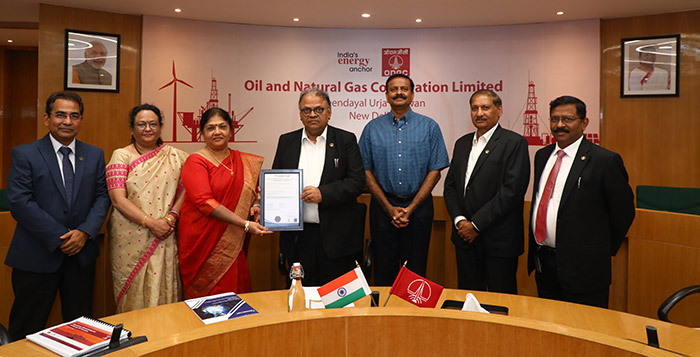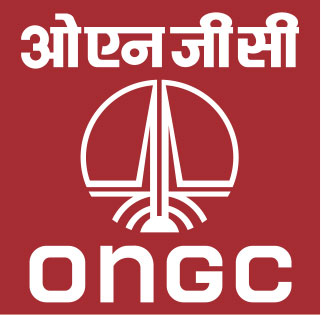Sea Survival Training
- Why is Sea Survival Training critical?
- ONGC’s Sea Survival Centre: A National, and indeed, a Global asset
- Safety is paramount and valuable
- A Training for all!
- Other important training protocols
ONGC first CPSE in India to get certified for Anti-Bribery Management System by an international accredited certification body
Oil and Natural Gas Corporation (ONGC) has become the first Central Public Sector Enterprise (CPSE) in India to get certified for Anti-Bribery Management System (ABMS) by an international accredited certification body, M/s InterCert USA.

Left to right: ONGC Director (HR) Manish Patil, Director (Exploration) Sushma Rawat, Director (Finance) Pomila Jaspal,
Chairman and CEO Arun Kumar Singh, CVO Ranjan Prakash Thakur, Director (T&FS) OP Singh & Director (Production) Pankaj Kumar
ONGC was the first organization in India that adopted the Integrity Pact (IP) by Transparency International in 2005. ABMS Certification, thus, becomes another significant milestone in the journey of the Energy Maharatna towards strengthening its stature as a preferred business partner.
After complete assessment and validation by M/s InterCert USA, ABMS has been implemented as per ISO 37001:2016 International Standard under the guidance of an international consultancy firm M/s Digital Age, in the first phase across 10 departments of ONGC’s Corporate Office in Delhi.
Apart from the Chairman and Directors of ONGC, Chief Vigilance Officer Ranjan Prakash Thakur, and Key Executives of Corporate Departments were also present during the award ceremony, along with a representative from the Certification Body M/s InterCert.
Notes to Editors:
ISO 37001:2016, an International Standard in the domain of ABMS, guides organizations on how to eradicate bribery-related incidents and concerns. It addresses one of the world’s most challenging issues head-on and demonstrates a committed approach to stamping out corruption (bribery) by providing a globally recognized way to address the issue.
This International Standard allows organizations to prevent, detect and address bribery by adopting an Anti-bribery policy, appointing person(s) to oversee anti-bribery compliance, training, risk assessments and due diligence on projects and business associates, implementing financial and commercial controls, and instituting reporting and investigation procedures.

